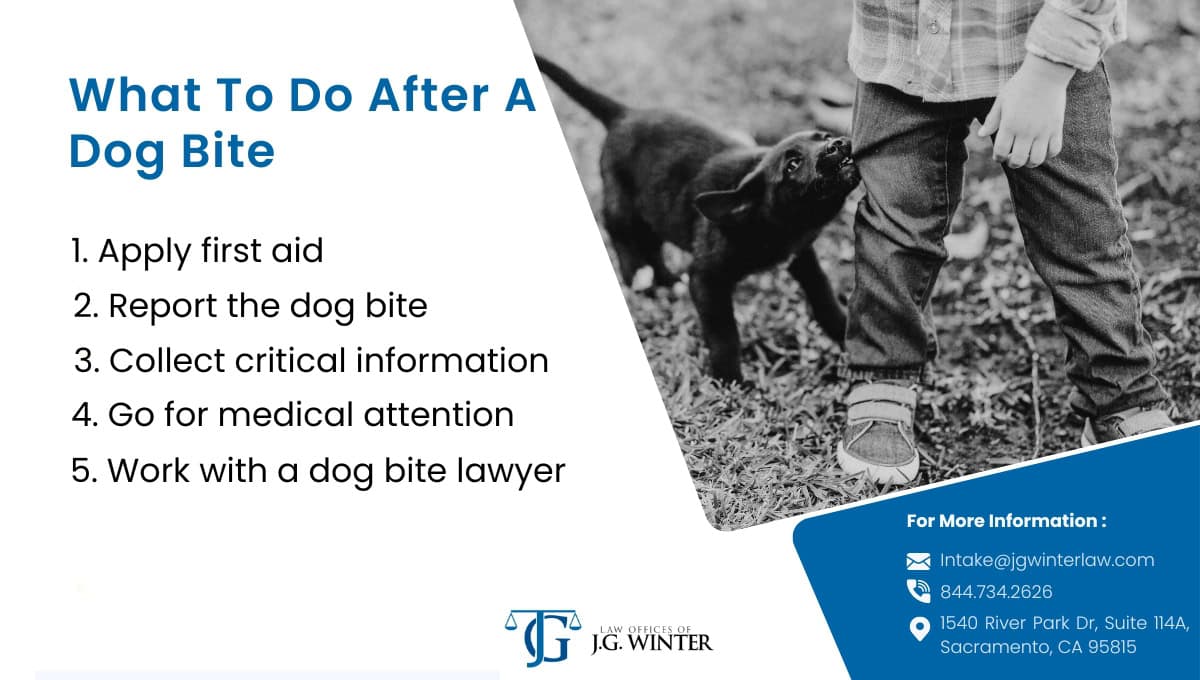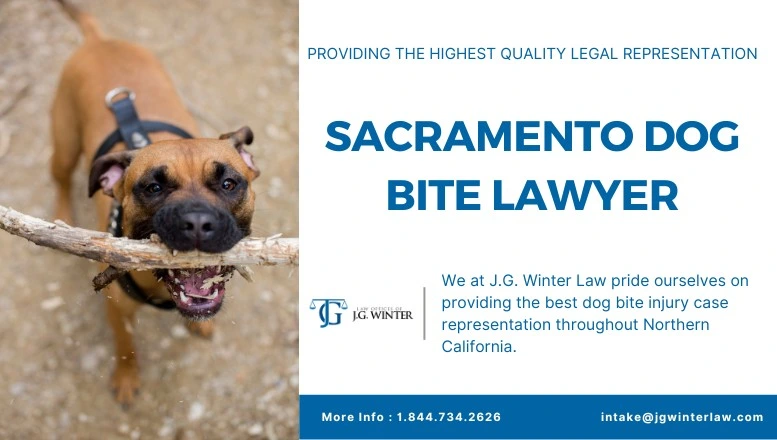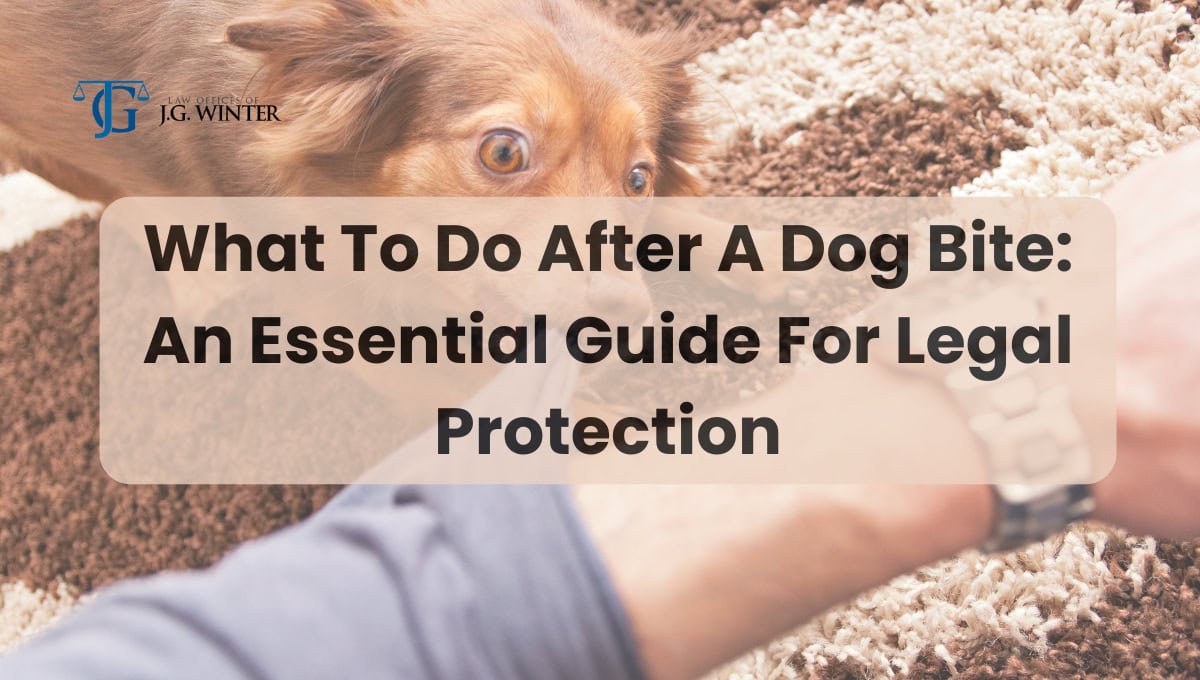Victims of dog bites face physical, emotional, and financial burdens. The uncertainty surrounding legal protections can further complicate situations during these vulnerable times. Understanding what to do after a dog bite is important to ensure your safety and secure the necessary support.
This guide offers clear, actionable steps to effectively manage these complexities, helping you understand your rights, protect yourself, and make informed decisions about legal help.

1. Apply first aid
Applying first aid after a dog bite injury is important to address immediate medical needs and minimize the risk of medical complications. First aid is also important for legal protection because it shows that the victim acted quickly to take care of their injuries. It demonstrates diligence and responsibility to address the situation, which can be crucial in legal proceedings. You can call someone to assist with first aid or visit a nearby pharmacy.
Follow these steps immediately at the accident scene for effective first aid:
- Clean the wound: Gently wash the bite area with soap and water to remove dirt and bacteria. Use a clean cloth or sterile gauze to dab the wound dry.
- Apply antiseptic: Apply a commonly recommended antiseptic solution to disinfect the wound and reduce the risk of infection.
- Control bleeding: If the wound is bleeding, apply gentle pressure with a clean cloth or bandage to stop the bleeding.
- Cover the wound: Cover the bite with a clean bandage or sterile dressing to protect it from contamination.
2. Report the dog bite
Once you have completed the first aid, report the dog bite to the police and the appropriate animal services department. Determine which agency handles animal control in the location of the bite, which could be a city or county department. Reporting the incident creates an official record detailing the dog, the victim, and the circumstances of the attack. This record is important if you need legal action, like filing a personal injury claim. Animal control might also check if any dog bite laws were broken and if the dog owner should be fined or cited.
When you report to the police, provide a detailed account of the incident. The police report will further document the event and support any claims for damages, strengthening your case if you seek compensation through legal channels. Be sure to get a copy of the reports for your records.
3. Collect critical information
While waiting for the police and animal control, don’t forget to collect critical information to help authorities investigate the incident. Here are some of the critical information to gather:
- Date and time of incident: Record the date and time when the dog bite occurred to provide a precise timeline of events.
- Location: Note where the dog bite took place, including the address or specific area (e.g., park, street).
- Description of dog: Describe the dog’s breed, size, color, and any distinguishing features (e.g., collar, tags, markings).
- Dog owner information: Obtain the name, address, and contact information of the dog’s owner if known or identifiable.
- Witnesses: Identify witnesses who saw the dog bite incident and collect their names and contact details for potential testimony.
- Severity of injury: Assess the severity of your injuries and document any visible wounds or symptoms resulting from the dog bite.
- Circumstances: Describe the circumstances leading up to the dog bite, including any provocation or aggressive behavior exhibited by the dog.
- Dog’s behavior: Note the dog’s behavior before and after the incident, including any signs of aggression, barking, or restraint by the owner.
4. Go for medical attention
After getting first aid, see a doctor for a full check-up. Dog bites can cause serious infections like tetanus, cellulitis, or even rabies due to bacteria from the dog’s mouth. Getting treated early can prevent further problems and help you heal faster.
Also, a detailed medical report will record the extent of your dog bite injuries and the treatment you received. This record is very important if you need to file insurance claims, sue the dog owner, or ask for compensation for medical bills and other damages.
Quick medical care keeps you safe and provides important documents for any legal or insurance issues.
5. Work with a dog bite lawyer
Handling a legal case can be time-consuming and stressful. A lawyer takes care of all legal aspects, allowing you to focus on recovery and healing.
A dog bite lawyer can help identify the liable parties, whether the dog owner, property owner, or another party, and hold them accountable. They can accurately calculate your total damages, including medical bills, lost wages, and pain. Lawyers are good at negotiating with insurance companies and can represent you in court if needed. All in all, hiring a dog bite lawyer boosts your chance of getting fair compensation.
Get help from J.G. Winter Law for your dog bite case

If a dog has bitten you, follow these steps to take control of your situation. If you need legal help, our personal injury attorney can guide you through this process. JG Winter Law have a track record in dog bite cases. With offices all over California, you can access legal support near your place. The local lawyers have insights into the nuances of regional legal practices and can work efficiently with your case.
If you are worried about any charges, don’t. Initial consultations are free and non-obligatory. You won’t pay upfront fees if you choose to work with us. We operate contingently, meaning you only pay if we win your case.
Let us help you get the compensation you deserve. Contact J.G. Winter Law at 844-734-2626 today to schedule your free consultation.


